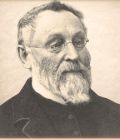COMMON NAME:
TIN.
Symptoms
Burning in the palms of the hands and soles of the feet (Lachesis, Sulphur).
Weakness in the extremities (Arsenicum, Bryonia, Calcarea, Gelsemium, Kali-P., Lycopodium).
Pressing, drawing and burning heat in the limbs.
Marked weakness with trembling, which is felt more when moving slowly.
So weak she drops into a chair instead of sitting down (N.).
While dressing in the morning has to sit down several times to rest (Carb-An.) (N.).
Pressive, Stupefying headache (B.).
Headache, usually neuralgic, which comes on gradually and grows steadily worse till it reaches its height or severest point, when it begins to grow easier and goes away just as us gradually as it came on (G.).
Pale face, with sunken eyes (Cina, Ferrum, Staphysagria) (B.).
When singing or using voice, aching and weakness in the deltoid arms (A.).
Anxious sensation of heat from the least motion.
Faint sensation because of goneness in the epigastric region (Phosphorus).
Hoarseness, with deep, husky or hollow voice, relieved for the time by coughing or by expectoration mucus (A.).
Tongue coated with yellow mucus (A.).
Continued use of the voice proves enervating (Phosphorus).
Hysterical and hypochondriacal spasms, with pain in the abdomen and in the region of the diaphragm.
Rest aggravates, whilst motion relieves; only the debility is felt while walking.
THE PAIN BECOME SLOWLY WORSE AND DIMINISH SLOWLY (Kalm., Natrum muriaticum, Phosphorus, Platina, Spigelia, Sulph-Ac.).
Fetid odour from the mouth (Nux vomica, Pulsatilla) (A.).
EVERYTHING TASTES BITTER BUT WATER (Aconite) (A.).
Emaciation, with a gone feeling at the epigastrium (Sepia, Sulphur, Zincum met.).
Sinking, empty, all-gone sensation in the stomach (Chelidonium, Phosphorus, Sepia) (N.).
A FEELING OF HUNGER, BUT HE CANNOT EAT (Lycopodium).
Gastralgia or gastric ulcer; the pains begin lightly and increase gradually to the highest point, and then gradually decline (N.).
INSATIABLE HUNGER (Arsenicum, Chelidonium, Iodium, Tuberculinum) (Bt.).
COLIC RELIEVED BY HARD PRESSURE, OR BY LAYING ABDOMEN ACROSS THE KNEE OR ON THE SHOULDER (Coloc.) (N.).
Colic with a sensation of hunger, bitter eructations, and diarrhoea.
Nausea and vomiting, especially in the morning (A.).
NAUSEA OR VOMITING FROM THE ODOUR OF COOKING FOOD (Arsenicum, Colchicum, Sepia) (A.).
Lumbrici; passes worms (Calcarea, Sulphur) (N.).
Vomiting of blood (Aconite, Ipecac., Phosphorus) (Bt.).
Diarrhoea consisting of mucus (Aloe, Mercurius, Nux vomica, Sulphur).
Prolapsus, worse during stool (Calcarea phos., Conium, Nux vomica, Podophyllum, Pulsatilla) (N.).
Leucorrhoea, with great debility; weakness seems to proceed from the chest (N.).
Leucorrhoea, with great debility; weakness seems to proceed from the chest (N.).
Before menses, mania erotica (Calcarea phos., Phosphorus, Stramonium, Veratrum) (B.).
Gushes of debilitating leucorrhoea (Calcarea, Graphites, Lycopodium, Sepia, Silicea) (B.).
Menses too early and too profuse (Calcarea, Kali carb., Acid nitricum) (A.).
SADNESS BEFORE MENSES (Calcarea, Causticum, Conium, Ferrum, Lac-C., Murx., Natrum muriaticum, Acid nitricum, Pulsatilla, Sepia, Veratrum) (A.).
Pain in the malar bones, during menses (A.).
Atony of the bladder (Arsenicum, Causticum, Conium, Gelsemium, Lycopodium, Nux vomica, Opium, Pareir., Terebintha) (B.).
Want of desire to urinate (Causticum).
Disease of the mucous membranes nature (Bryonia, Kali bichromicum, Natrum muriaticum, Pulsatilla, Rhus toxicodendron).
Distressing cough of a constant of nature (Bryonia, Phosphorus).
Bronchitis (Aconite, Bryonia, Calcarea sulph., Ferr-R., Kali-M., Nat-S., Phosphorus, Pulsatilla).
LOOSE COUGH, WITH HEAVY, GREEN, SWEET EXPECTORATION (Pulsatilla). (N.).
GREAT WEAKNESS IN THE CHEST; CAN HARDLY TALK; WITH GENERAL DEBILITY, WHICH CENTERS IN THE CHEST (N.).
Faint and weak, especially when going downstairs; can go up well enough (reverse of Calcarea) (N.).
It should be remembered in pulmonary tuberculosis, when the pulmonary changes are rapid and persist inspite of the well- directed efforts to check them. The character of the expectoration and the sensation of great weakness, referred to the chest, are characteristic (Bl.).
Empty sensation in the chest (Cocc., Phosphorus) (A.).
Short breath, from every effort; must loosen clothes (B.).
Catarrhal phthisis; chest feels raw or hollow (Phosphorus) (B.).
Easily expectorates quantities of sweet, or bright yellow pus or balls of mucus (B.).
Expectoration profuse, like the white of an egg; sweetish or salty; sour, putrid, or musty; during the day (A.).
Extreme exhaustion of mind and body (Kali-P.) (A.).
Sad, despondent; feels like crying all the time, but crying makes her worse (N.).
Cannot answer questions, feels so weak (Gelsemium, Acid phosphoricum.) (G.).
Child wants to be carried over shoulder (B.).
Dread of seeing people (Pulsatilla) (Br.).
Cough: Deep, hollow, shattering, strangling; concussive, in paroxysms of three coughs (of two coughs-Mercurius); dry, while in bed, in the evening (A.).
Worm fevers (Bryonia, Cina, Natrum phos., Phosphorus, Silicea)
Answers unwillingly and abruptly (C.).
Seminal emissions without dreams (Anacardium, Camph., Conium, Dioscorea, Graphites, Hamamelis, Pic-Ac.) (C.).
Sexual desire increased (Cantharis, Conium, Graphites, Kali-P., Nux vomica, Phosphorus, Pic-Ac.).
Easy sexual organs (Nux vomica, Phosphorus, Sulphur) (B.).
Sleeps with one leg drawn up, the other stretched out (Lac-C.) (Br.).
Sleeps lying on the abdomen (Belladonna, Cina, Coloc., Podophyllum, Pulsatilla, Stramonium) (K.).
Sleeps, lying on the abdomen (Belladonna, Cina, Coloc., Podophyllum, Pulsatilla, Stramonium) (K.).
Chilliness over the whole body (Arsenicum, Nux vomica, Silicea) (C.).
Hectic fever (Ars-I., Ferrum, Phosphorus, Pulsatilla) (A.).
Low fever, with bronchial or pulmonary complications (Phosphorus, Silicea) (A.).
Chill at 10 A.M., with numb finger tips (B.).
Sweat : Mouldy, musty odour; after 4 A.M., every morning; on neck and forehead; very debilitating (A.).
AGGRAVATION :
From using voice; at 10 A.M.; from lying on the right side; ascending steps; from laughing; from singing; by drinking anything warm; and after motion.
AMELIORATION :
From hard pressure; after expectoration and by rapid motion.
RELATIONSHIP :
ANTIDOTES: Hepar and Pulsatilla
It follows well after Causticum and is followed by Calcarea, Phosphorus, Silicea, Sulph and Tuberculinum
Complementary: Pulsatilla

